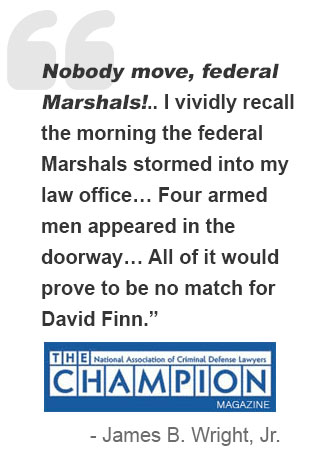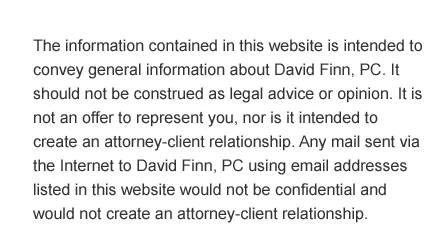


Information: On-Line/Criminal Solicitation of a Minor
ON-LINE SOLICITATION OF A MINOR FOR SEXUAL
PURPOSES
Definition, Laws, & Defense
On-line solicitation of a minor for a sexual purpose, that is, with intent to commit a sexual activity with that minor, is one of the most investigated and targeted activities by both federal and state law enforcement in this day and age. [See my Blog for details regarding a recent sting operation involving the Murphy Police Department involving Dateline NBC and Perverted Justice]. The “on-line solicitation” as it known as, is usually in the form of contact by electronic mail (e-mail), instant messaging, or other use of the Internet.
The contact with a minor (underage person), often a male contacting a real or decoy underage female, becomes a violation of state and federal law when the conversation turns to content of a sexual nature to the extent that it appears that the contacting person is communication in a sexually explicit manner with the contacted person.
If you have been accused of On-line Solicitation of a Minor for Sexual Purposes, get on-line solicitation of a minor defense representation now by contacting David Finn for an appointment to evaluate your situation. Your first meeting to discuss your options is free.
Often, persons are prosecuted pursuant to these laws when a person arranges to meet the minor to engage in sexual activity. However, the person making the on-line communication may be prosecuted even if he does not follow through with contact with the minor, but rather merely communicates in a sexually explicit manner. Also, persons can be prosecuted here if they forward sexually explicit material to the minor.
Depending upon the nature of the communication, and the age of the child/decoy, the case can be a state jail felony (180 days-2 years in state jail), all the way up to a second-degree felony (2-20 years in prison).
Both the United States Code (federal criminal laws) and the Texas Penal Code (state criminal laws) contain laws against on-line solicitation of minors for a sexual purpose. Below is the law in state courts in Texas against solicitation of a minor using the Internet (on-line solicitation), as set out in Texas Penal Code Section 33.021:
ONLINE SOLICITATION OF A MINOR (Texas Penal
Code 33.021
(a) in this section:
(1) “Minor” means:
(A) an individual who represents himself or herself to be younger than
17 years of age; or
(B) an individual whom the actor believes to be younger than 17 years of
age.
(2) “Sexual contact,” “sexual intercourse,” and “deviate sexual intercourse” have the meanings assigned by Section 21.01
(3) “Sexually explicit” means any communication, language, or material, including a photographic or video image, that relates to or describes sexual conduct, as defined by Section 43.25.
(b) A person who is 17 years of age or older commits an offense if, with the intent to arouse or gratify the sexual desire of any person, the person, over the Internet or by electronic mail or a commercial online service, intentionally:
(1) communicates in a sexually explicit manner with a minor; or
(2) distributes sexually explicit material to a minor.
(c) A person commits an offense if the person, over the Internet or by electronic mail or a commercial online service, knowingly solicits a minor to meet another person, including the actor, with the intent that the minor will engage in sexual contact, sexual intercourse, or deviate sexual intercourse with the actor or another person.
DEFENSE TO AN ON-LINE SOLICITATION CHARGE
The following are defenses to the On-line solicitation of a Minor per Section 33.021 of the Texas Penal Code, and are contained on paragraph (e) of this statute:
(e) It is a defense to prosecution under this section that at the time conduct described by Subsection (b) or (c) was committed:
(1) the actor was married to the minor; or
(2) the actor was not more than three years older than the minor and the minor consented to the conduct.
The following are not defenses to the state statute of on-line solicitation, as per the statute itself, Section 33.021. This portion of the statute actually prevents a person from claiming that he was not serious about the content of the communication with the minor:
(d) It is not a defense to prosecution under Subsection (c) that:
(1) the meeting did not occur;
(2) the actor did not intend for the meeting to occur; or
(3) the actor was engaged in a fantasy at the time of commission of the offense.
Note: In some situations, a person can be prosecuted for criminal solicitation of a minor. It is similar to the statute involving on-line solicitation of a minor, but there are some important distinctions. As you can see below, this type of solicitation is not limited to on-line communications.
SEC. 15.031. CRIMINAL SOLICITATION OF A MINOR
(a) A person commits an offense if, with intent that an offense listed by Section 3g(a)(1), Article 42.12, Code of Criminal Procedure, by committed, the person requests, commands, or attempts to induce a minor to engage in specific conduct that, under the circumstances surrounding the actor’s conduct as the actor believes them to be, would constitute an offense listed by Section 3g(a)(1), Article 42.12, or make the minor a party to the commission of an offense listed by Section 3g(a)(1), Article 42.12.
(b) A person commits an offense if, with intent that an offense under Section 21.11, 22.011, 22.021, or 43.25 be committed, the person by any means requests, commands, or attempts to induce a minor or another whom the person believes to be a minor to engage in specific conduct that, under the circumstances surrounding the actor’s conduct as the actor believes them to be, would constitute an offense under one of those sections or would make the minor or other believed by the person to be a minor a party to the commission of an offense under one of those sections.
(c) A person may not be convicted under this section on the uncorroborated testimony of the minor allegedly solicited unless the solicitation is made under circumstances strongly corroborative of both the solicitation itself and the actor’s intent that the minor act on the solicitation.
(d) It is no defense to prosecution under this section that:
(1) the minor solicited is not criminally responsible for the offense solicited;
(2) the minor solicited has been acquitted, has not been prosecuted or convicted, has been convicted of a different offense or a different type or class of offense, or is immune from prosecution;
(3)the actor belongs to a class of persons that by definition of the offense solicited is legally incapable of committing the offense in an individual capacity; or
(4) the offense solicited was actually committed.
(e) An offense under this section is one category lower than the solicited offense.
(f) In this section, “minor” means an individual younger than 17 years of age.
The punishment for solicitation of a minor is one category lower than the solicited offense.
Phone Numbers
Office: (214) 538-6629







